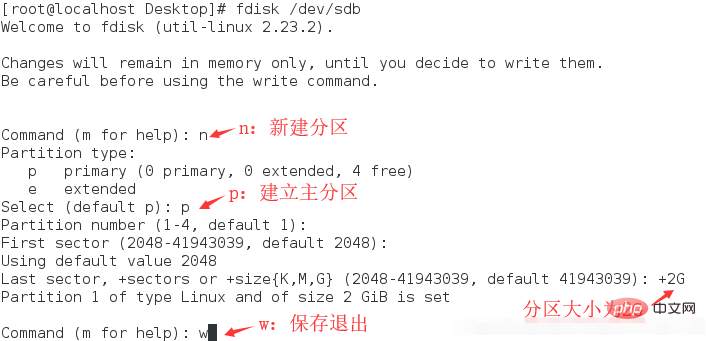
The Linux system has a swap partition. In Linux systems, the swap partition (swap partition) is similar to Windows virtual memory. When the physical memory (RAM) is full, it is used as a cache of physical memory. When the system requires more memory resources and the physical memory is full, inactive pages in the memory will be moved to the swap partition; the swap partition is located on the hard disk, so its access speed is slower than that of physical memory.

#The operating environment of this tutorial: linux7.3 system, Dell G3 computer.
Sometimes, it is necessary to add more swap space after the operating system installation is complete. For example: Upgrade the system memory from 64MB to 128MB, but the original swap space is only 128MB. If the system performs memory-intensive operations or runs programs that require a large amount of memory, it will be more beneficial to increase the swap space to 256MB.
There are two options for adding swap space: adding a swap partition or adding a swap file.
Introduction to Swap Partition
Swap (i.e.: swap partition) in Linux is similar to the virtual memory of Windows, which is when the memory is insufficient. , virtualize part of the hard disk space into memory to solve the problem of insufficient memory capacity.
In Linux systems, the swap partition (Swap) is used as a cache of physical memory when the physical memory (RAM) is full. When the system requires more memory resources and the physical memory is full, inactive pages in the memory will be moved to the swap partition. The swap partition is located on the hard disk, so its access speed is slower than physical memory.
Under normal circumstances, the size of the swap partition should be equivalent to twice the computer memory, but cannot exceed 2048MB (2GB).
Suggestions for swap partition division:
In a production environment, the size of the swap partition is generally 1.5 to 2 times the real physical memory.
Linux system configuration swap partition (swap)
1. Add a new hard disk to be used as a switch partition
You can check that the newly added hard disk system will recognize it as sbd:
#ls -l /dev/sd*

2. Use the partition command to create a partition for the newly added hard disk:
#fdisk /dev/sdb

3. After that, you can see that there is a new partition of sdb1 in the dev directory:
#ls -l /dev/sdb*
4. Use the swap-specific partition tool to format the newly created primary partition:
#mkswap /dev/sdb1

5. Mount the swap partition and check that the original 2G swap partition has increased to 4G after mounting the switch partition:
#swapon /dev/sdb1
#free -h

6. To implement automatic mounting on restart, you need to write the permanent mounting configuration into the fstab configuration file
#echo "/dev/sdb1 swap swap defaults 0 0" >> /etc/fstab
7. If you no longer need it, you can uninstall it and restore the original 2G:
#swapoff /dev/sdb1
#free -h

Related recommendations: "Linux Video Tutorial》
The above is the detailed content of Does the linux system not have a swap partition?. For more information, please follow other related articles on the PHP Chinese website!